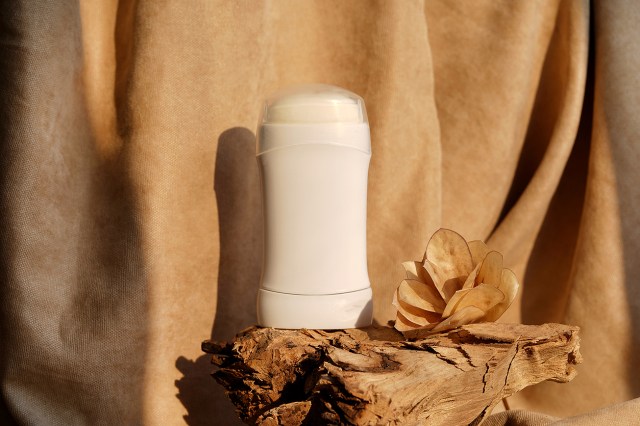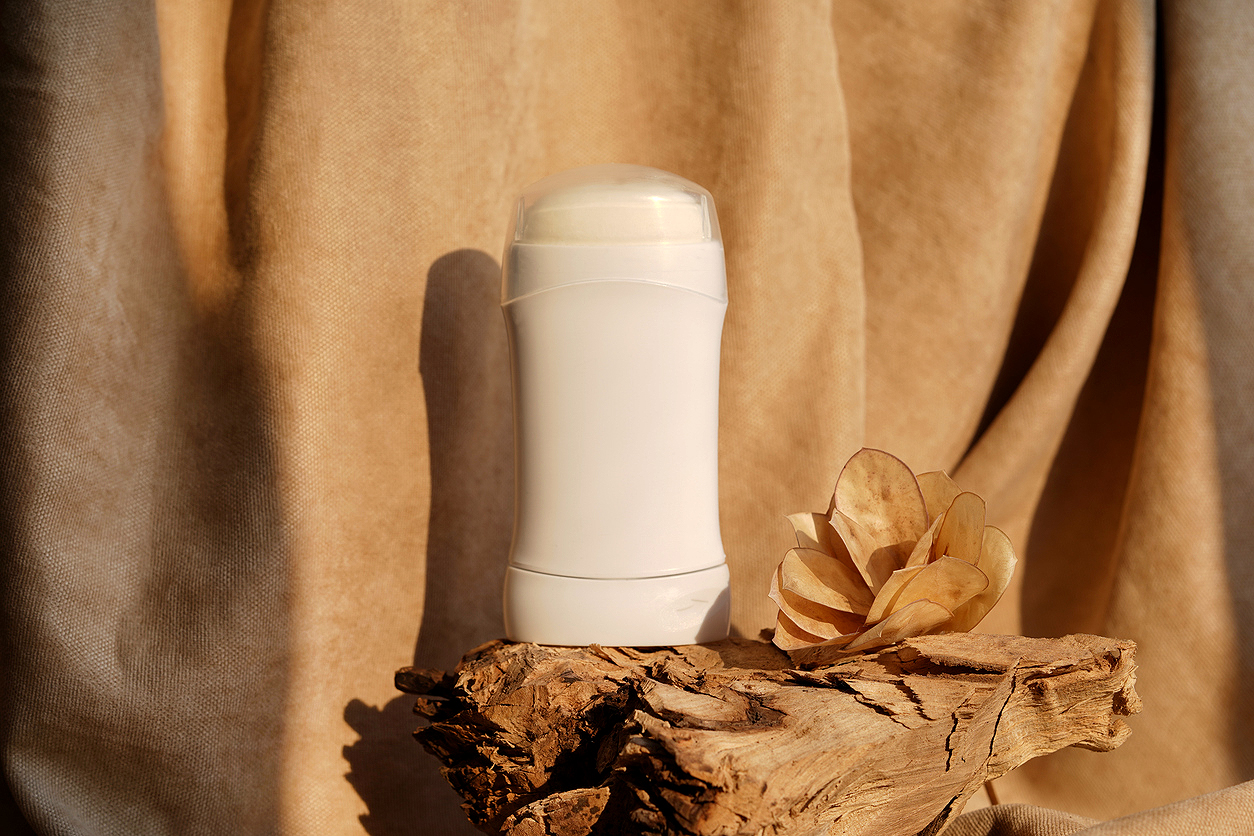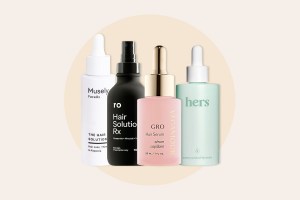We independently evaluate all recommended products and services. If you click on links we provide, we may receive compensation.
Have we judged antiperspirants too harshly? Over the past few years, drugstore deodorant has gotten serious side-eye from an increasingly ingredient-conscious population. The reason is the aluminum — many antiperspirants include it in their formulas to keep you from sweating, and some believe the ingredient is linked to breast cancer and Alzheimer’s disease.
Is it true? That’s debatable — but in any case, it’s got people spooked. Demand for aluminum-free alternatives has risen considerably in recent years, and brands are happy to cater to it with natural deodorants in different formulas, textures, and applications. Chances are, the go-to deo you’ve worn for years now comes in an aluminum-free version. But are those natural deodorants actually better for you?

Does Aluminum Cause Breast Cancer?
It turns out, antiperspirants may just be a victim of some bad PR. “The stigma arose due to the use of aluminum salt being present in antiperspirants and the possible link to the development of breast cancer and Alzheimer's disease,” New York-based dermatologist Dr. Jeanatte Graf explains. “There is currently no confirmed study that the two correlate.”
Even the American Cancer Society will tell you: If there’s a link, there isn’t strong enough evidence to prove it. One study showed only a fraction (0.012%) of aluminum was absorbed through the skin when wearing deodorant, less than you’d get from eating many different foods. That’s good news if you’ve been using antiperspirant this whole time and are just finding out about all of this.

Who Should Use Aluminum-Free Deodorant?
What makes natural deodorant, for some people, a better choice? It depends on what you think of as “better.” If less sweat is your goal, you probably won’t achieve it with an aluminum-free deodorant. “Natural deodorant is a product designed to minimize body odor without using synthetic chemicals,” Dr. Margarita Lolis, a dermatologist with clients in New York and New Jersey, explains. So if pronounceable, natural, or naturally derived ingredients are a priority, natural deodorant could be your thing.
Just know you’re still going to sweat; it’ll just be a little less pungent… for a time. “Natural deodorants typically contain ingredients like baking soda, cornstarch, or arrowroot powder to absorb moisture; essential oils for fragrance and antimicrobial properties to reduce odor-causing bacteria; and natural waxes or butters for skin conditioning,” Dr. Lolis says. Anyone who has used natural deodorant has probably had to reapply it at some point in the day. Odors tend to come back faster when you wear natural deodorant, so it’s a good idea to keep it on hand to re-up.
But be careful, because even natural ingredients can be irritating. “Reapplying isn't necessarily a bad thing, but ingredients that are present in natural deodorant, such as baking soda, could cause irritation to the underarm area if you have never used a natural deodorant before,” Dr. Graf says. If you find yourself with a tender, red underarm area, perhaps with some darkening, too, you may be applying — or reapplying — too much of the stuff.
For those with underarm sensitivities or conditions such as eczema and psoriasis, there are aluminum-free options without fragrances or baking soda that could be more gentle.

What Should You Look for in a Deodorant?
If you don’t care whether your deodorant is natural, and just want to know what you should be looking for, the derms have a few suggestions. Shea butter and coconut oil are a go, as they’re great for keeping the underarm area nice and moisturized. Antibacterials such as zinc oxide get a shout-out from Dr. Graf. And essential oils including tea tree, eucalyptus, lavender, and sandalwood are great for keeping odor at bay, Dr. Lolis says. She also calls out Weleda Rose Spray and Kosterina Extra Virgin Deodorant among her favorites.
Both derms say there are some ingredients you should probably steer clear of: For example, parabens and phalatates are to be avoided as much as possible, as they’ve been linked to hormone disruption. Propylene glycol isn't your friend either. “It’s a chemical that may cause skin irritation and damage the nervous system,” Dr. Lolis says. She also suggests avoiding triclosan, as it “may affect the thyroid function and create antibiotic resistance.”
The lesson here: Do your research on anything you put on or in your body. Just because something is natural does not necessarily make it good for you. If you do choose to wear natural deodorant, keep it in your to-go bag. You never know when you may need to freshen up.
This article is for general informational purposes only.
Affiliate Disclaimer Medical Disclaimer
















 Unique Beauty is free for all users.
Unique Beauty is free for all users.